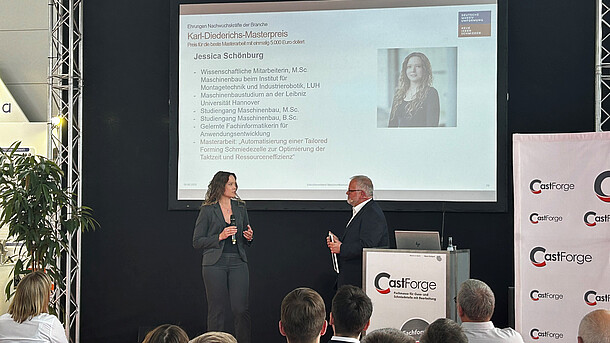Welcome to match
At the Institute of Assembly Technology and Robotics (match), future-oriented ideas for automated and robot-assisted assembly in production are developed under the direction of Professor Annika Raatz. In addition to research in the area of tension between humans and machines, match offers a variety of courses in the fields of robotics and assembly.






![[Translate to English:] [Translate to English:]](/fileadmin/_processed_/8/0/csm_Simone_Christian_Italy_16-9_598f251806.jpg)

































